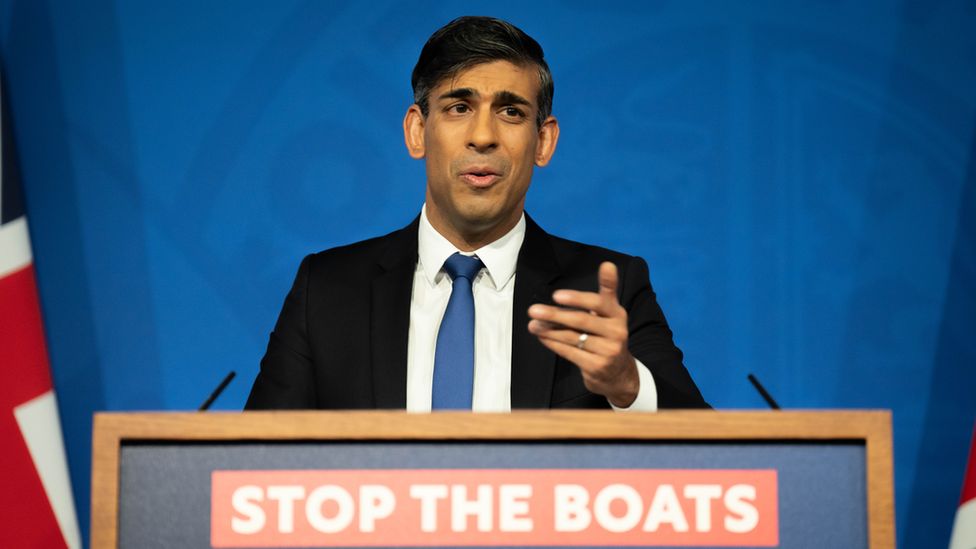ARTICLE AD BOX
 Image source, PA Media
Image source, PA Media
Labour wants ministers to reveal cash given and set to be given to the East African country
By Henry Zeffman
Chief political correspondent
Labour will try to force the government to publish a string of documents relating to its Rwanda policy.
The party will table a vote on Tuesday demanding ministers disclose how much it would cost to send each asylum seeker to Rwanda.
The vote also demands ministers reveal cash given and set to be given to the East African country.
In addition, Labour want to see the full memorandum of understanding ministers reached with Rwanda.
The scheme to send some asylum seekers to Rwanda was first announced by Boris Johnson in April 2022. The plan has been repeatedly delayed by legal challenges and no asylum seekers have been sent to Rwanda from the UK so far.
Sir Keir Starmer's party also want the government to publish papers revealed by the BBC which suggest Rishi Sunak had initially wanted to scale back the scheme when he was chancellor in 2022.
Those documents were prepared in No 10 when Boris Johnson was trying to persuade Mr Sunak to sign off on the plan.
On Sunday Mr Sunak denied ever doubting the policy would work, saying it was his job as chancellor to ask "tough questions" about the cost of every policy that crossed his desk. He said it was "wrong" to suggest that he did not "believe in the scheme".
Labour want to force the vote on Tuesday afternoon as part of an opposition day, which allows the party to choose a subject for debate. The vote will take the form of a Humble Address - which technically means parliament is asking the King to compel the release of the documents, making the vote binding on the government.
The opposition are optimistic that some Conservative MPs will back the motion - although it would be extremely unusual for the government to suffer a large enough rebellion to lose the vote.
Tuesday's parliamentary gambit will force a Home Office minister to come to the Commons to justify the government's position on Rwanda before the next phase of parliamentary debates and votes on the Safety of Rwanda Bill, which would state that Rwanda should be considered a safe country under British law along with other provisions designed to put the policy on a stronger legal footing.
The bill is expected to return to the Commons this month, most likely next week, with several factions of the Conservative Party uneasy about the plans - some fearing they may go too far, others believing they do not go far enough.
Speaking at an event in Accrington on Monday, the prime minister said he would welcome "bright ideas" on how to improve the bill, but insisted "my entire party is supportive" of the legislation.
He said: "If people have bright ideas about how we can make this more effective whilst complying with our international obligations and retaining Rwanda's participation in the scheme… then of course, I'm open to having those discussions."
Yvette Cooper, the shadow home secretary, told the BBC: "It is totally unacceptable that the Conservatives have refused to come clean on the full costs of the failing Rwanda scheme.
"So far, costs are apparently rising to £400m of taxpayers' money with more home secretaries than asylum seekers sent to Kigali.
"The Conservatives should stop dragging out this chaos and come clean about the real costs and problems."
A government source said: "We have already declared £240m that has been paid in our partnership agreement with the Rwandan government and one payment of £50m to come in April.
"After that the shadow home secretary's figures are her guesswork and for commercial sensitivity reasons we have not outlined any other potential payments that are all predicated on getting flights to Rwanda, which we are determined to do to stop the boats."
The source added: "Labour don't like our plans, but really don't have anything at all to offer that would realistically tackle this now-global challenge of illegal migration."

 1 year ago
24
1 year ago
24








 English (US) ·
English (US) ·